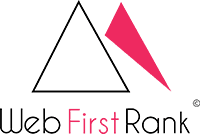- 15 February 2023
- by wfr
- Non classé
In today’s digital world, social media has become an integral part of any business’s marketing strategy. With millions of active users across various platforms, social media is an excellent way to connect with your target audience, build brand awareness, and increase your online presence. However, merely having a social media presence isn’t enough. To get the most out of social media, you need to optimize your accounts and content for maximum engagement and visibility. In this comprehensive guide, we’ll walk you through the ins and outs of social media optimization, including social media marketing, strategy, management, analytics, engagement, advertising, content, influencers, branding, and platforms.
Social Media Marketing: Defining Your Objectives and Target Audience
Social media marketing is the process of using social media platforms to promote your brand, products, or services. It involves creating and sharing content on social media networks like Facebook, Twitter, Instagram, LinkedIn, and others to engage with your target audience, drive traffic to your website, and ultimately increase sales. To get started with social media marketing, it’s essential to define your objectives and identify your target audience. This will help you create a more effective social media strategy and reach the right people with the right message.
Social Media Strategy: Creating a Plan for Success
Creating a social media strategy is essential to your success on social media. A social media strategy is a roadmap that outlines your goals, target audience, content strategy, engagement strategy, and metrics for success. It helps you stay focused and organized, ensuring that your social media efforts align with your business objectives. To create a social media strategy that works for your business, you need to research your audience, understand the best practices for each platform, and create a content calendar that aligns with your objectives.
Social Media Management: Tips and Tools for Success
Social media management involves the day-to-day tasks of managing your social media presence. It includes tasks like creating and scheduling content, monitoring engagement, and responding to comments and messages. To be successful at social media management, you need to be organized, efficient, and consistent. There are several tools and software available that can help you streamline your social media management, including scheduling tools, social listening tools, and analytics tools.
Social Media Analytics: Measuring Your Success
Social media analytics is the process of tracking and measuring your social media performance. It involves analyzing your engagement, reach, and impressions to determine what’s working and what’s not. By tracking your social media analytics, you can optimize your strategy and improve your results. There are several metrics to track, including engagement rate, reach, impressions, clicks, and conversions.
Social Media Engagement: Building Relationships with Your Audience
Social media engagement is the process of building relationships with your audience on social media. It involves responding to comments and messages, starting conversations, and creating content that encourages engagement. By building relationships with your audience, you can create loyal fans who will help spread the word about your brand.
Social Media Advertising: Reaching a Larger Audience
Social media advertising involves paying for ads on social media platforms to reach a larger audience. Social media advertising can be an effective way to increase your reach and drive more traffic to your website. To create effective social media ads, you need to identify your target audience, create compelling ad copy and images, and track your results.
Social Media Content: Creating Compelling and Shareable Content
Social media content is the backbone of your social media strategy. It includes images, videos, blog posts, and other types of content that you share on social media. To create effective social media content, you need to understand your audience, create compelling and shareable content, and optimize your content for each platform.
Social Media Analytics
In order to develop an effective social media strategy, it is important to have a clear understanding of how your social media accounts are performing. This is where social media analytics comes in. Social media analytics involves tracking and analyzing data from your social media accounts, which can help you gain insights into your audience, content performance, and overall social media success.
There are a variety of social media analytics tools available, both free and paid, that can help you track your social media performance. Some popular options include Google Analytics, Hootsuite, and Sprout Social. These tools allow you to track metrics such as engagement rates, follower growth, and click-through rates, which can help you measure the success of your social media efforts and adjust your strategy as needed.
Social Media Influencers
Influencer marketing has become an increasingly popular strategy for brands looking to reach new audiences and build brand awareness. Social media influencers are individuals who have a large following on social media and can effectively promote products or services to their audience.
When working with social media influencers, it is important to choose individuals who align with your brand values and have a following that is relevant to your target audience. Working with influencers can help boost your reach and credibility on social media, as well as drive sales and conversions.
Social Media Branding
Developing a strong social media brand is essential for building a cohesive and recognizable presence on social media. Social media branding involves creating a consistent visual and messaging identity across your social media accounts, which can help build brand recognition and loyalty.
When developing a social media brand, it is important to use consistent branding elements such as colors, logos, and imagery.
In conclusion, social media optimization is a crucial aspect of any digital marketing strategy. With the right approach, businesses can leverage social media to drive engagement, increase brand awareness, and generate leads and sales. By implementing a social media marketing plan that incorporates social media strategy, management, analytics, engagement, advertising, content, influencers, and branding across multiple social media platforms, businesses can position themselves for success.
As you work to optimize your social media presence, keep in mind that there is no one-size-fits-all approach. It’s important to constantly monitor and adjust your strategy based on performance metrics and audience feedback. By staying agile and adaptable, you can ensure that your social media efforts continue to deliver results over the long term.
If you’re looking to take your social media optimization to the next level, consider partnering with a professional digital marketing agency. With their expertise and experience, they can help you develop a comprehensive social media strategy that drives results for your business.
Remember, social media is not just a passing fad. It’s an essential tool that businesses can use to build relationships with their target audience and achieve their marketing goals. So, whether you’re just getting started with social media marketing or looking to refine your existing strategy, there’s never been a better time to start optimizing your social media presence.












